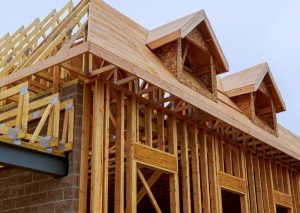 Owning a home is still a cornerstone of the American Dream. And there’s something truly special about owning a home that’s been built just for you—where you choose the floorplan, the finishes, the appliances, and every little detail. That’s why new home construction is so appealing. Nevertheless, there can be important factors to keep in mind when considering buying a new home.
Owning a home is still a cornerstone of the American Dream. And there’s something truly special about owning a home that’s been built just for you—where you choose the floorplan, the finishes, the appliances, and every little detail. That’s why new home construction is so appealing. Nevertheless, there can be important factors to keep in mind when considering buying a new home.
Real estate is a cyclical business—it always has been, and it always will be. Since I began my career in 1978, I’ve witnessed several market cycles in this area. The one constant? Real estate is always driven by the market.
In slower markets, builders often rely on REALTORS® to help sell their new home construction. But when things heat up, some builders try to cut agents out of the process entirely. That means many homebuyers find themselves navigating one of the biggest—and most complex— financial transactions of their lives without any professional representation.
No matter the market, having someone in your corner who truly cares about your best interests makes all the difference. This is because contracts used in new home subdivisions or by custom home builders are typically not the standard Colorado Real Estate Commission-approved forms. Instead, they’re usually drafted by the builder’s attorney—with terms that heavily favor the builder. Because of this, buyers are strongly encouraged to have their own attorney review any contract related to new construction. In some cases, if a property is substantially complete, a custom builder may allow a REALTOR® to use the Commission-approved form. However, even when a home is fully finished, most new home subdivisions require buyers to use their own pre-written contract specific to that development.When market conditions allow, prospective homebuyers can typically request a copy of the builder’s contract in advance—giving them or their attorney time to review it at their convenience before signing. In a fast-moving market, where immediate signatures are often required, many builders will agree to include a clause that gives the buyer a set number of days to have the contract reviewed by their attorney after signing. If a builder refuses to allow this kind of clause, it’s a red flag—and a good reason to ask, why not? When entering into a contract with a custom builder, the builder may or may not be open to modifications suggested by the buyer’s attorney. Large production homebuilders, in particular, typically take a “take it or leave it” approach and do not allow any changes to their contracts. If the buyer is set on purchasing the home and the builder refuses to make adjustments recommended by the attorney, it’s essential that the attorney clearly explain any potential risks the buyer may be assuming by proceeding under the builder’s terms.
Some questions you should keep in mind as you and/or your attorney review the contract for new construction are as follows:
1. Is there a deadline for completion at all? If there is a deadline for completion, is there any
penalty to the builder if the home isn’t ready for move in by the deadline?
2. What signifies completion? A Certificate of Occupancy? Can the builder close on a Temporary
Certificate of Occupancy?
3. How is an uncompleted item punch list made? When is the punch list considered too long so
that the closing is delayed? Will the Builder escrow for uncompleted items?
4. How much is the deposit? Is it non-refundable? Are there any conditions where it is
refundable? Is there a specific performance or liquidated damages clause in the contract?
5. Is the Buyer allowed access to the property during construction?
6. Are change orders allowed? What is the process for change orders? Is there a charge for
change orders?
7. Are all promises made by the on-site sales person done in writing?
8. Are the Plans and Specifications detailed enough so that you know exactly what you are
getting?
9. What are “standard” items in the home? What are options?
10. Does the Builder provide title insurance? Will there be owners extended coverage?
11. Does the Builder pay any other closing costs?
12. Does the Builder or the buyer obtain the construction loan?
13. What remedy does the Buyer have if the Seller/Builder refuses to close? This may seem
odd, but it could happen in an appreciating market where the Builder could actually resell the
property for more than the current contract price.
14. Provisions for “Acts of God”? Who provides Builder’s risk insurance if something happens to
the home during construction such as wind or fire damage?
15. How is the REALTOR® representing the buyer being paid? Is there any conflict between the
amount the builder is offering versus the amount agreed to in the Buyer Agency Agreement?
Builder Incentives
Builders often offer incentives to buyers who choose to use the builder’s preferred or in-house lender. However, many homebuyers don’t have the tools or experience to evaluate whether these incentives truly benefit them. In some cases, the upfront perks may come at the cost of a higher interest rate over the life of the loan. A licensed lending professional—working in the buyer’s best interest—can help compare options and determine whether the builder’s offer is genuinely a good deal or simply appears attractive on the surface. Builder Warranties on New Homes Builders offer a range of warranties, and when purchasing a new home, you should always receive a copy of the specific warranty provided by the builder. If the warranty isn’t backed by a third-party insurance company, its strength depends entirely on the financial stability and integrity of the builder. Even when a warranty is insured, it’s important to understand that it doesn’t guarantee full coverage in the event of a construction issue. To protect your interests, be sure to review the builder’s contract and warranty thoroughly—
and consult with your REALTOR®, attorney, and lending professional to ensure you fully understand the terms of the agreement and the overall transaction.
__________
Duane graduated with a business degree and a major in real estate from the University of Colorado in 1978. He has been a Realtor® in Boulder since that time. He joined RE/MAX of Boulder in 1982 and has facilitated over 2,500 transactions over his career. Living the life of a Realtor and being immersed in real estate led to the inception of his book, Realtor for Life. For questions, e-mail duaneduggan@boulderco.com, or go to BoulderPropertyNetwork.com.
